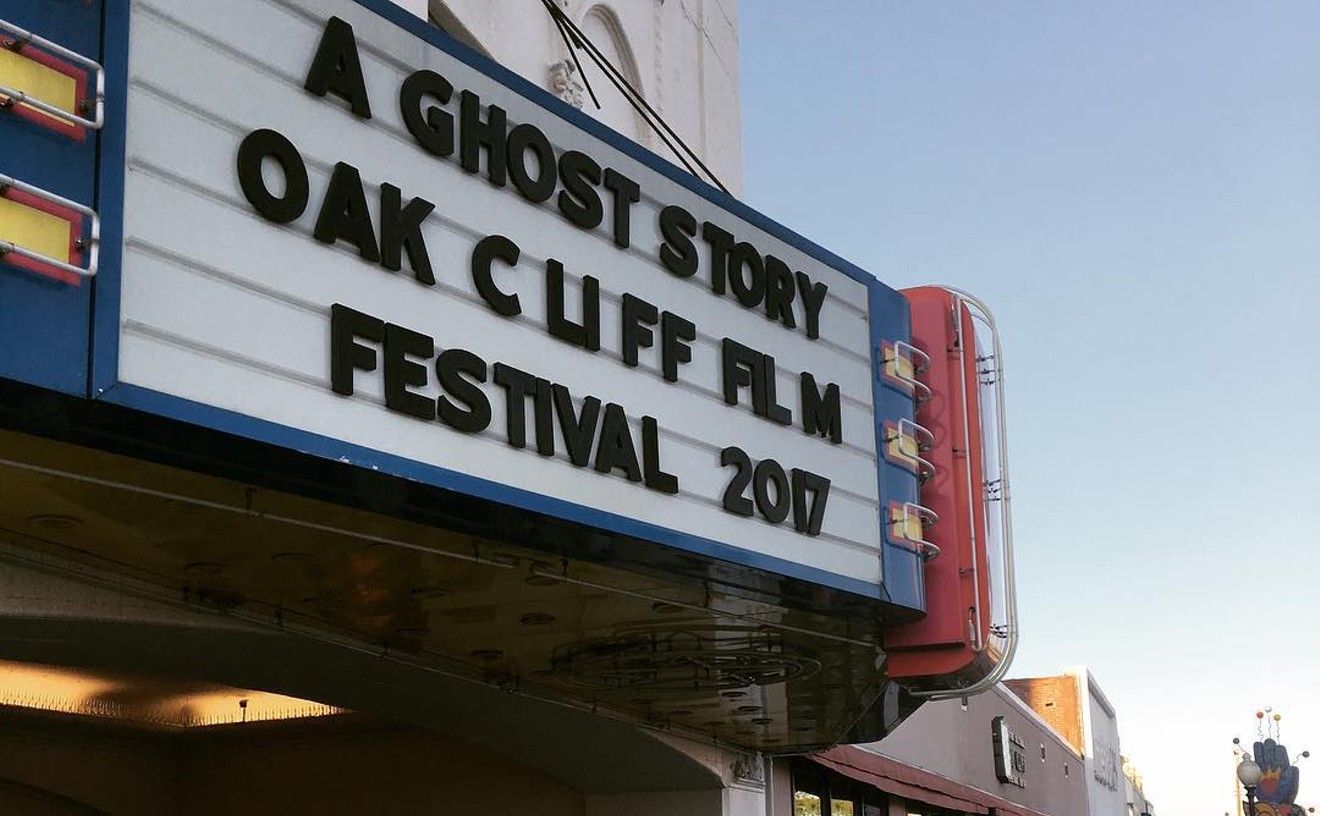10 Books to Read This Fall
Fall creeps into Dallas this month with everything pumpkin and, if we're lucky, glorious weather. The temperatures are dropping below 80 degrees more often and you might just see a few leaves turn to orange. And if you find this weather, makes your want to curl up with a good...
By Lauren Smart and Caroline Pritchard
October 6, 2015
[
{
"name": "Air - MediumRectangle - Inline Content - Mobile Display Size",
"component": "18855504",
"insertPoint": "2",
"requiredCountToDisplay": "2"
},{
"name": "Editor Picks",
"component": "17105533",
"insertPoint": "4",
"requiredCountToDisplay": "1"
},{
"name": "Inline Links",
"component": "18349797",
"insertPoint": "8th",
"startingPoint": 8,
"requiredCountToDisplay": "7",
"maxInsertions": 25
},{
"name": "Air - MediumRectangle - Combo - Inline Content",
"component": "17105532",
"insertPoint": "8th",
"startingPoint": 8,
"requiredCountToDisplay": "7",
"maxInsertions": 25
},{
"name": "Inline Links",
"component": "18349797",
"insertPoint": "8th",
"startingPoint": 12,
"requiredCountToDisplay": "11",
"maxInsertions": 25
},{
"name": "Air - Leaderboard Tower - Combo - Inline Content",
"component": "17105535",
"insertPoint": "8th",
"startingPoint": 12,
"requiredCountToDisplay": "11",
"maxInsertions": 25
}
]
Fall creeps into Dallas this month with everything pumpkin and, if we're lucky, glorious weather. The temperatures are dropping below 80 degrees more often and you might just see a few leaves turn to orange. If you find this weather makes you want to curl up with a good book, let us recommend a few. Arts Editor Lauren Smart and Copy Editor/Arts Reporter Caroline North compiled a list of books they're loving right now for your reading enjoyment.
Caroline's Picks:
Speak by Louisa Hall
Science fiction really seems to be reinvigorated lately. As we get closer and closer to the dawn of artificial intelligence (have you heard about Bina48, the social robot created in Plano?) that topic in particular seems to be coming up frequently in movies and TV shows, like the stellar Ex Machina and the series Black Mirror. If you enjoyed those things, you’ll love Louisa Hall’s Speak. Hall tells the story of the invention of AI — in the future she depicts, robot companions have been banned for being too lifelike — and its effect on our understanding of what it means to be human, to have a soul and to communicate with one another. The journeys of six characters including Alan Turing and a young Puritan girl are seamlessly interwoven. Hall’s work with poetry — she studied at Harvard with famed Irish poet Seamus Heaney and has since taught creative writing at UT Austin — comes through in a story that manages to be both graceful and page-turning at the same time.
Colorless Tsukuru Tazaki by Haruki Murakami
As summer gives way to fall, it’s time to pull out underbed boxes full of sweatshirts. The feeling of slipping on that favorite, perfectly worn hoodie is exactly what came to mind when we began reading Haruki Murakami’s latest, Colorless Tsukuru Tazaki, which was recently released in paperback. Murakami’s novels are all built from the same Lego set. Blocks include meek, unassuming male narrators; painstaking descriptions of simple meals; talking cats; jazz music; elements of the supernatural — the list goes on. But he never fails to come up with a new permutation, resulting in reads that are fascinating because they are at once familiar and entirely foreign. On the spectrum of weird (and Murakami can get pretty weird ... Colonel Sanders was even a character in Kafka on the Shore), Colorless Tsukuru Tazaki is fairly straightforward, though no less enchanting. This novel about a man who seeks out high school friends who abruptly cut him out of their group 16 years prior to find out why and get closure has surreal moments, but it has more in common with Norwegian Wood than Kafka.
Two Years Eight Months and Twenty-Eight Nights: A Novel by Salman Rushdie
We love all kinds of books. Short, simple books; fanciful books; books with flowery language; terse, hyper-realistic, grim books. But there’s a certain type of author that really blows our minds and Rushdie belongs to this class: He writes books that are epic in scope. His stories often span centuries, conveying the histories of entire continents through the lives of dozens of characters rendered in minute detail, with import for all of human civilization (Midnight’s Children). Plus his writing has been banned and even warranted him death threats (Satanic Verses), so that naturally earns him extra cool points. He’s particularly gifted with love stories, and that’s why we’re excited about his release this month, Two Years Eight Months. It’s set in New York City in the near future, when a group of children vested with supernatural powers become aware of those powers and are called to use them in service of a worldwide revolution. Two Years takes inspiration from the East as it blends a love story with history and mythology. Rushdie writes books that suck the reader through a wormhole into another universe, and we can’t wait to join him there again.
M Train by Patti Smith
Patti Smith’s first book, the memoir Just Kids, was inescapable. Not being particular fans of Smith’s music, we took our time getting around to it, but when we did, boy were we sorry. With Kids, Smith revealed herself to be plenty noteworthy as a writer, her other achievements aside. But her aptitude for music does show through clearly, and it’s an asset to her writing, which has a poetic, lyrical quality. First Just Kids captivated us with the story of Smith’s romance with photographer Robert Mapplethorpe, with whom she rose to fame, and now she’s back with M Train, which dwells more on her contemporary life, played out in visits to coffeeshops and to the gravesites of her literary heroes such as French writer Rimbaud. We’re sorry about before, Smith. This time you go straight to the top of the stack.
The Narrow Road to the Deep North by Richard Flanagan
If you’re looking for a read with historical gravitas, pick up this novel by Australian novelist Richard Flanagan, which won the Man Booker Prize in 2014 (it’s also recently out in paperback). Flanagan’s father was a POW in Japan in WWII and Narrow Road draws from his experience to tell the story of an Australian doctor, Dorrigo Evans, treating fellow POWs as their Japanese captors force them to build the Thailand-Burma Railway under horrifying conditions. Oscillating between the POW camp in Japan and present-day Australia, Flanagan’s novel unravels a love story while teaching readers about a dark and potentially unfamiliar time in history.
Lauren's Picks:
The Argonauts by Maggie Nelson
Nelson is one of those rare authors able to weave critical thought into memoir in such a way that her specific circumstances become general truth. In her latest book, she tackles another personal subject: the nuances of gender identity. She uses poetry, song lyrics and metaphor to discuss her passionate and loving relationship with her transgender partner, Harry Dodge, and her struggles with wanting to have a kid, like a traditional family, despite being anything but traditional. Even if the narrative she's telling doesn't resonate, the way she tells it — reflecting on the fluidity of identity, the complex nature of love and the female struggle with aging — aches with honesty.
Purity by Jonathan Franzen
America's authorial genius returns to his literary throne with Purity, a fascinating study of a young girl, Pip, who finds herself entangled in the Sunlight Project, an Internet hacking group in Bolivia run by the charismatic Andreas Wolf. Like other Franzen books, it shines in moments of character description and really digs into the decisions Pip, Wolf and the other characters in the book make. It's so well-written and the story so rich in its exploration of the Internet and digital communication that it tugs you along through the 563 pages before you realize you haven't left the couch in hours.
The Mountain and the Wall by Alisa Ganieva
At first, the Republic of Dagestan, in spite of being a very real region at the southwestern tip of Russia, seems far away and utterly unreal. Perhaps that is because Ganieva's debut novel, published and translated by Deep Vellum, is one of the first books set in this part of the world published in English. Or perhaps that is because of Ganieva's writing, which has a kind of magic. The catalysts for the story are rumors of a wall to be built between Dagestan and Russia, which would be the end of Dagestan as our young characters know it — the wall is all anyone can talk about. Fears of Islamic terrorism overtake the young people and much of the novel revolves around the clash between our narrators and "the beards." The story told in a style similar to stream of consciousness, inserting the reader into the pulse of the action and confronting the fears and frustrations of the people in Dagestan.
The Neapolitan Novels By Elena Ferrante
Forgive me for being so far behind the times when it comes to the subject of Italian author Ferrante. As a gift, I recently received My Brilliant Friend, the first in a series of books about a female friendship set in a chaotic Italy spanning from the 1950s to today. If book reviewers had a version of Rotten Tomatoes, it's likely Ferrante's series would have 100%. These books tell the story of Elena Greco and Lila Cerullo, best friends from childhood in crime-ridden Naples, who retain an intense, passionate friendship throughout their lives. It follows them through bitter disappointments, careers, love and death. In all, there are four books in the series.
The Art of Memoir by Mary Karr
There's no one more equipped to write a memoir about writing memoirs than Mary Karr. Author of The Liar's Club, a book published in 1995 about her unwieldy childhood in southeast Texas, Karr is the grande dame of memoir writing. Her books are captivating in their storytelling and fascinating in self-reflection. Now, after years of teaching memoir writing at Syracuse University, Karr has written a book about writing memoirs, as much about the craft as her experience spending her life doing so.
BEFORE YOU GO...
Can you help us continue to share our stories? Since the beginning, Dallas Observer has been defined as the free, independent voice of Dallas — and we'd like to keep it that way. Our members allow us to continue offering readers access to our incisive coverage of local news, food, and culture with no paywalls.
Can you help us continue to share our stories? Since the beginning, Dallas Observer has been defined as the free, independent voice of Dallas — and we'd like to keep it that way. Our members allow us to continue offering readers access to our incisive coverage of local news, food, and culture with no paywalls.
Caroline Pritchard studied English at Kenyon College in Gambier, Ohio, and in 2012 returned to her hometown of Dallas, where she spends her free time seeking out new places to roller skate and play pinball.
Contact:
Caroline Pritchard

Lauren Smart
Contact:
Lauren Smart


Newsletter Sign Up
Enter your name, zip code, and email
I agree to the Terms of Service and
Privacy Policy
Sign up for our newsletters
Get the latest
Arts & Culture news,
free stuff and more!
Trending
Use of this website constitutes acceptance of our
terms of use,
our cookies policy, and our
privacy policy
The Dallas Observer may earn a portion of sales from products & services purchased through links on our site from our
affiliate partners.
©2024
Dallas Observer, LP. All rights reserved.
Do Not Sell or Share My Information
Do Not Sell or Share My Information








